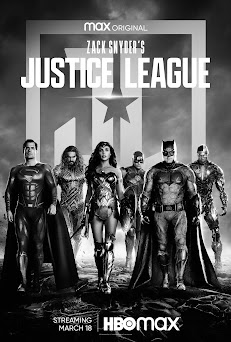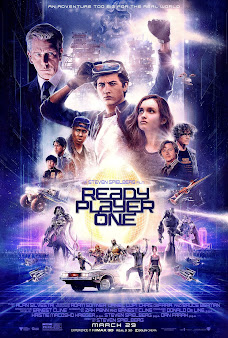Patrick Bateman seems to have it all. A well-paid job, beautiful fiancee, and a lifestyle that only the upper elite can love. However, Bateman isn't satisfied whatsoever. He despises his co-workers, his fiancee, and anyone that appears to be below him socially all because it ruins his own self-image. In fact, whenever something is done to embarrass him or put him down compared to others, he needs to take his anger out by inflicting harm on others. Based on the 1991 novel by Bret Easton Ellis, the film adaptation to one of the most controversial books ever made had a polarizing response back when it was released, but has managed to achieve a growing fanbase. While the story, for the most part until the end, is fairly typical in the psychological thriller genre in regards to following a psychopathic killer with the viewer wondering when he will get caught, it's the tone of the film that really makes it unique. The mixture of black comedy, psychological thriller and horror allows the satirical elements to shine in the surrealist moments while the narrative serves as a character study for Bateman as well as dissecting some cliches of the genre that is meant to overly confuse the viewer. The humour as a whole is really strong, mainly thanks to Bateman's eccentric personality, quirks, and trying to hold this higher status by analyzing music or the petty grudges he holds to others.
Christain Bale as Patrick Bateman is simply iconic. Bale both hams it up while also taking the role seriously at the same time, much like the mentally unstable Bateman, who he himself is confused on whether or not he enjoys harming others or not. At times, he tends to sound a bit like Jim Carrey, but it honestly works for the character. Bateman is interesting as he surprisingly represents the everyman and their mental thought process regarding their desires and ego, despite the character's social status and psychopathic tendencies. Bale practically steals the film, which is quite noticeable considering how minor the side cast is. Willam Dafoe as Detective Kimball is only in three scenes, but so well done thanks to Dafoe's skills as an actor and the use of multiple takes where the character has conflicting opinions on Bateman interspaced in his scenes is great. Jared Leto as Paul Allen, Bateman's rival, is also barely in the film due to the plot revolving around the mystery of his death and whether or not Bateman really did kill him. Chloe Sevigny as Jean is really good as the timid secretary who falls for Bateman's charisma, but isn't relevant to the plot much. Reese Witherspoon as Evelyn, Bateman's fiancee, is also good as the oblivious and emotional girlfriend that is sort of the dumb blonde stereotype that Bateman can't stand. Lastly, there's Cara Seymour as "Christie", a prostitute that Bateman uses for both pleasure and abuse with Seymour being so sympathetic and awkwardly funny in every minute. There are other characters such as Bateman's co-workers and his fling, Courtney, but they aren't really necessary to the plot or even that memorable, aside from a hilarious moment with the gay co-worker. The cast and characters are both a huge win and a small loss in a way. All of the performances are good in some capacity, with Bale being a good example of a snubbed nomination for Best Actor, but the side characters as a whole aren't that engaging either due to how they are barely used in the film or just not being very likeable or engaging. Bale as Bateman is the highlight as he's practically in every scene and he's a fantastic character to boot, but it comes at a cost to having the side characters being quite meaningless as a result.
Mary Harron is perhaps best known for this film on her resume along with her being a feminist, which is funny given the film's extreme violence towards women. The setting of 1987 is actually done in a way that feels like the film is timeless to an extent. Yes, the references to videotapes and Bateman's giant cell-phone are dead giveaways, but the nature of the upper-class lifestyle and the representation of Wall-Street brokers essentially doing anything but work is brilliantly captured in a way that it's universal and aged perfectly well. I also love the opening credits where it tricks the viewer into thinking that they are seeing blood, but is revealed to be fine dining. Speaking of dining, the food and menus of the upper-class restaurants are also a nice piece of character Harron showcases as she makes the idea that the elite lifestyle is so snooty that even some of the food we are described sounds quite nasty or implausible. The cinematography by Andrzej Sekula is very much like his work on "Reservoir Dogs". The camerawork can feel amateur, but it's meant to be grounded and gritty in the lack of style and flair. On top of that, there are some great one-shots, pans, and tracking shots, specifically whenever the scene is set in a sense of luxury. The close-ups of Bateman's face though is iconography at its simplicity, regardless if it's clean, sweaty, coated in make-up, or covered in blood. The score by John Cale is all over the place, but in a good way. Because of the clash of genre and tone, Cale manages to provide various themes for various circumstances. From the peaceful, yet, haunting instrumentals, the suspenseful horror/slasher music, the more awkward comedic upbeat tracks, Cale is known for his experimentation as a musician and although it's by no means the best of the genre, the original score fits the film's nature. The licensed soundtrack though is extremely memorable by using some great tracks from the time period such as New Order's "True Faith", Huey Lewis and the News's "Hip to be Square", Phil Collins's "Sussudio", and Whitney Houston's "Greatest Love of All". The last thing to mention about the film itself is the level of violence and sex. The novel is far more explicit to Bateman's crimes and actions, while the film is not only lighter on, but tame in regards to portraying the violence and sex. I know it's strange saying this as the film not only has Bateman partake in threesomes and kill victims with axes and chainsaws, but it never gets overly gory or even sexually graphic by showing a penis or vagina. Despite not being overly strong on these elements, the sequences themselves feel explicit in nature mainly thanks to both the performances and direction of said sequences.
"American Psycho" is such a unique film in both its existence and execution. While the plot is fairly typical of the genre and the side characters are extremely overshadowed by the lead, those are necessary flaws to make the rest of the film stand out in its quality. From the tone and blending of humour, psychological thrillers and slashers, Bale as Bateman is undeniably one of his crowning achievements of his career, the performances from all of the characters are generally pretty good despite said characters being underused, Sekula's cinematography reflects both the upper-class nature via his camera tricks while the simple close-ups of Bateman ensure instant iconography thanks to the framing and performance, Cale's score has plenty of range and experimentation with various genres, the licensed soundtrack is a great collection of the underrated 80's hits, and Harron's directing does a wonderful job at not only having the 1987 setting and upper-class lifestyle still feel timeless in a way, but having a tamer approach to the violence and sex that still feels effectively uncomfortable. There's simply so much to analyze in the film along with some memorable sequences that I don't want to give everything away, especially in regards to the film's biggest questions and theories. It's something to be experienced rather than ruined.
Verdict: 9/10. One of the best psychological thrillers in the genre as well as a clever satire regarding said genre, the elite, and the people we are capable of being. Check it out if you can easily stomach some of the intense sequences and be captivated by Bale's performance as the infamous Patrick Bateman.







